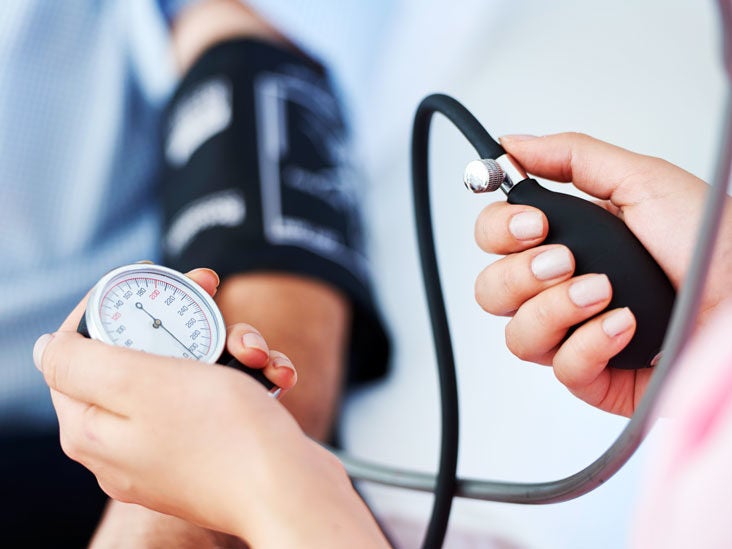Causes of Secondary Hypertension, if not treated properly, can lead to serious consequences. It is very important to know them and look at the causes of secondary hypertension to avoid complications.
According to a new study published in the British Medical Journal, doctors and researchers have found that eating too much salt is the most common cause of secondary hypertension. It is also said that as many as 35% of adults in the U.S. are affected by the condition.
This disease is also called primary hypertension or essential hypertension. This disorder happens when the blood pressure increases more than 140/90 mm Hg, and the person doesn’t have any other disease that can cause hypertension. This is a problem of lifestyle factors.
This article gives you complete information about the causes of secondary hypertension.
Secondary hypertension occurs when blood pressure rises above normal levels. A common cause of secondary hypertension is the overuse of diuretics, which increases water retention and lowers blood pressure.
One of the most common reasons that people have hypertension is because they have diabetes.
Hypertension can lead to other problems, such as vision problems and heart disease.
This blog post will explain why people develop hypertension and how it can be treated.
Blood pressure control
The primary cause is increased aldosterone secretion in response to increased levels of angiotensin II produced by the rennin-angiotensin system. This, in turn, stimulates the release of potassium from cells and increases the reabsorption of sodium by the kidney, thereby causing a rise in blood pressure.
Various factors, including kidney disease, thyroid dysfunction, diabetes, and certain types of cancer,s can cause secondary hypertension.
Secondary hypertension is when your blood pressure is too high despite not having any common causes of high blood pressure.
Many people who have never been diagnosed with high blood pressure think that they don’t need to worry about it because they don’t have the other risk factors for high blood pressure.
However, secondary hypertension is quite common and affects about one in five adults in the U.S.
If you’re concerned that you may have secondary hypertension, please check out our guide here to learn more about what causes secondary hypertension and which tests you can do.
Have you ever wondered what causes hypertension? Or, maybe, you are looking for the best treatment options for hypertension. Either way, this article will give you the information you need.
There are many causes of secondary hypertension, including endocrine disorders, genetic disorders, kidney disease, and more.
The American Heart Association defines secondary hypertension as “high blood pressure that occurs after another condition has been treated, and the underlying cause has been identified.”
Cardiovascular disease
Secondary hypertension is high blood pressure in someone with another condition that causes the blood pressure to rise.
The most common cause of secondary hypertension is renovascular hypertension, which is caused by a narrowing or obstruction of the arteries that carry blood out of the kidneys. This may occur due to kidney disease, an injury to the street, or an infection in the area. Other causes include thyroid disease, pheochromocytoma (a tumor on the adrenal gland), and renal cell carcinoma.
Depending on the cause, treatments for secondary hypertension include medicines, surgery, and lifestyle changes. Medications to treat secondary hypertension can have anti-hypertensives that relax blood vessels and beta-blockers.
Secondary hypertension is high blood pressure caused by an underlying condition such as kidney disease, thyroid disease, or hyperactivity of the adrenal glands. Certain medications may also cause it.
The most common causes are kidney disease, heart disease, and certain medications. Some common medications that can cause high blood pressure include beta-blockers, calcium channel blockers, angiotensin II receptor blockers, antiarrhythmics, corticosteroids, and diuretics.
High blood pressure can lead to complications like heart attack, stroke, and kidney damage. Make sure that your doctor is aware of any underlying conditions that may be causing hypertension.

Lifestyle factors
Secondary hypertension is a condition that occurs when blood pressure is abnormally high. It’s the result of several factors.
Most people with secondary hypertension have high blood pressure because of how their kidneys work.
The kidneys filter and remove water, salt, and other waste from the blood. If the filtering process isn’t working properly, blood pressure can become abnormally high.
Hypertension is defined as having high blood pressure. Blood pressure is the force of the blood pushing against the walls of your arteries.
There are two types of high blood pressure: primary and secondary. Primary hypertension causes your blood pressure to go up on its own. Genetic factors, hormonal changes, or obesity often cause it.
Secondary hypertension occurs when your blood pressure is elevated because of an underlying cause, such as kidney disease or other health problems. In some cases, the cause of secondary hypertension isn’t known.
Hypertension
Many factors can cause secondary hypertension. Some common causes include medications, poor diet, and lack of exercise.
It’s also important to note that certain medications can cause high blood pressure. You should talk to your doctor if you have been taking these drugs.
If you have been diagnosed with secondary hypertension, you should also speak with your doctor about treatment options.
If you’re unsure what to do, don’t hesitate to contact me. I’d love to talk with you and help you figure out the best solution for your needs!
I’ve been reading a lot lately about secondary hypertension. So, I decided to write a quick blog about it.
Secondary hypertension is defined as high blood pressure caused by another condition. It is often caused by kidney problems, which can lead to fluid retention and edema.
Certain medications, infections, or tumors can cause this. Other causes include the following:

Frequently Asked Questions (FAQs)
Q: What are the Causes of Secondary Hypertension?
A: A lot of times, when a person has hypertension, it is caused by their lifestyle. They are not exercising, eating foods they do not have, and having vegetables. A lot of times, it is associated with smoking cigarettes.
Q: Are there any other causes?
A: Yes. One thing that is not often discussed is high-stress jobs. People are always stressed out at work, leading to higher blood pressure. Also, if you have a stressful home life, that could cause your blood pressure to rise.
Q: What should a person do about secondary hypertension?
A: They need to eat healthily and cut back on the amount of alcohol that they consume. They also need to exercise.
Q: What causes secondary hypertension?
A: A lot of times, when you are born with a kidney disorder or a condition that affects blood pressure, it can make it difficult to regulate your blood pressure.
Q: How does one know if it’s high?
A: If your doctor detects it by physical examination and you are overweight, it is likely to be secondary.
Q: What’s the best way to treat it?
A: Treatment involves medications. We can control blood pressure, and some people may have to take medication regularly.
Q: Do other conditions cause hypertension?
A: Conditions such as diabetes, heart disease, stroke, and certain types of cancers also can cause hypertension.
Myths About Hypertension
1) The kidney isn’t producing enough salt.
2) There’s a problem with the receptors in the adrenal gland that sense when salt levels are too low.
3) There’s a problem with the receptors in the adrenal gland that sense when salt levels are too high.
4) The adrenal gland isn’t producing enough aldosterone.
5) There’s a problem with the receptors in the kidneys that sense when aldosterone levels are too low.
6) The adrenal gland isn’t producing enough cortisol.
7) There’s a problem with the receptors in the adrenal gland that sense when cortisol levels are too low.
8) The adrenal gland isn’t producing enough epinephrine.
9) There’s a problem with the receptors in the adrenal gland that sense when epinephrine levels are too low.
10) Hypertension is a chronic disease that has caused problems for decades.
Conclusion
This very common condition affects about 2% of the population.
It’s also very important to know that there are two types of hypertension: primary and secondary.
If you suspect you have secondary hypertension, you’ll want to talk to your doctor about your symptoms and signs.
In the meantime, there are some things that you can try to manage your blood pressure and your overall health.
Many people suffer from high blood pressure. A common cause of secondary hypertension is obesity. People who are overweight tend to experience higher blood pressure levels than thinner people.
While the causes of high blood pressure may be difficult to identify, it’s important to know the warning signs. If you experience these signs, see your doctor immediately to avoid serious complications.











